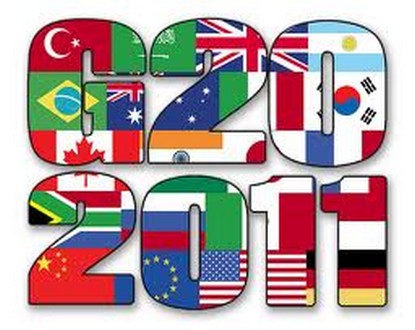The G20 members gathered in Cannes amidst great global uncertainties. While the Wall Street “Indignants” and their supporters protest that their voices are silenced even within our democracies, those living in extreme poverty have known this situation for too long: “The worst misfortune is to know you are counted as nothing, to the point where even your suffering is ignored.” [1]
The G20 members gather in Cannes amidst great global uncertainties. While the Wall Street “Indignants” and their supporters protest that their voices are silenced even within our democracies, those living in extreme poverty have known this situation for too long: “The worst misfortune is to know you are counted as nothing, to the point where even your suffering is ignored.” [1]
The global crisis cannot be used as an excuse to push back the ambition to eradicate poverty and inequality, whether within G20 countries or among other nations. However, current trends are very concerning. The austerity measures in Europe disproportionately affect the poorest citizens,
leading to a deterioration of social and economic rights.
What was once considered standard, such as family allowances, universal medical coverage, social services, and decent wages, are increasingly becoming
privileges.
More than 90 developing countries are following the trend with plans to reduce public spending in 2012, despite not being directly impacted by the crisis [2].
The International Movement ATD Fourth World [3], among the 100 NGOs accredited for the summit, believes that G20 countries should not abandon their duty to uphold fundamental rights in their efforts to achieve a recovery that is just for all.
Equity: To advance social and economic justice for all, it is imperative that the decisions made by the G20 are fully inclusive so as to benefit all segments of the population, particularly those most vulnerable to
social exclusion and extreme poverty. All policies considered to promote employment, food security, and social protection must take into account the necessary measures to ensure their results have truly universal reach.
Accountability: G20 countries must be held accountable for the commitments and promises made to eradicate extreme poverty, both within their own borders and globally. Fiscal austerity policies cannot
be used as an excuse to renege on the commitments made either in the Millennium Declaration and the Millennium Development Goals or in the Europe 2020 strategy. G20 members must lead by example by adopting redistribution and fiscal justice promotion policies not only to fulfill their promises but also to be truly ambitious in the fight against extreme poverty.
Participation: There is a lack of space and formal mechanisms for civil society organizations to engage in the G20 processes. As a result, the vast knowledge held by those with direct experience in the fight against extreme poverty remains untapped. The future Knowledge Sharing Network being developed under the G20 Development Working Group potentially can improve practice, but it is essential to include a space for civil society organizations, particularly those that have among their
active members people living in extreme poverty, to develop a more complete view of the most effective measures to promote an inclusive mode of development for all.
ATD Fourth World calls for the G20 to provide an innovative and bold response to global crises. As noted by Eugen Brand, Director General of the International Movement ATD Fourth World:
“[We need] thousands of encounters between worlds that ignore each other, opening up gatherings, creating day by day a history freed from seized powers and knowledge, false securities, a history where those who endure all crises are the first inspirers.”
[1] Quote from Joseph Wresinski, founder of ATD Fourth World.
[2] See UNICEF report “Austerity measures threaten children and poor households,” in English, September 2011.


